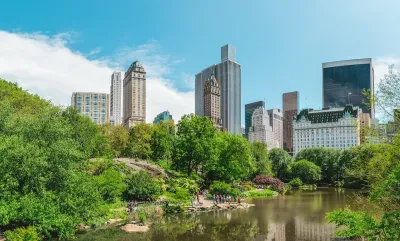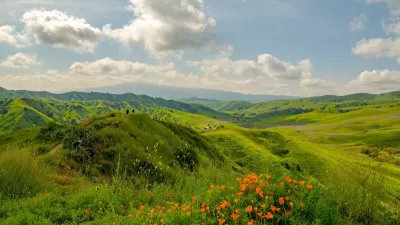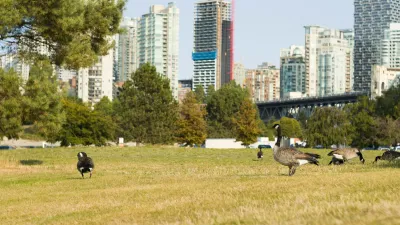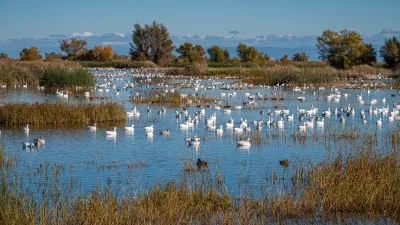Designed with green infrastructure, parks can mitigate flooding, reduce urban heat, and enhance climate resilience, offering cost-effective solutions to environmental challenges while benefiting communities.

Parks are widely cherished public spaces that bring communities together, but they can also serve as powerful tools for climate resilience when designed with green infrastructure in mind. While climate change remains politically divisive, the impacts of extreme weather—flooding, heat, and drought—are universally recognized. This has created an opportunity for bipartisan support of initiatives that expand and enhance public parks, as demonstrated by the widespread success of state and local ballot measures and federal legislation like the EXPLORE Act. As reported by Claire Elise Thompson, parks designed to mitigate climate risks not only provide recreational and social benefits but also strengthen communities against environmental challenges in a cost-effective way.
Green infrastructure, which mimics natural systems to manage water and heat, is an increasingly common feature in park design. In Atlanta, Rodney Cook Sr. Park was developed on a flood-prone site in Vine City to absorb excess stormwater and prevent surrounding neighborhoods from experiencing devastating floods. Similarly, Historic Fourth Ward Park features a retention basin that protects nearby communities while serving as a scenic public space. These parks exemplify how integrating flood management, shade trees, and water features into urban landscapes can enhance climate resilience while improving quality of life. Other cities, including Seattle and Boston, are adopting similar approaches, incorporating rain gardens, permeable surfaces, and cooling elements into their parks.
Despite its clear benefits, green infrastructure is not yet a universal practice in urban planning. Many cities still default to costly, traditional engineering solutions like underground pipes and cisterns, overlooking the added social, environmental, and economic advantages of nature-based approaches. However, as projects like Cook Park and Historic Fourth Ward Park demonstrate, green infrastructure can be a more cost-effective alternative while providing accessible recreational spaces. As extreme weather events become more frequent and severe, investing in parks as climate solutions offers a pragmatic and widely supported way to build more resilient communities.
FULL STORY: Climate change is politically divisive. Public parks? Not so much.

Planetizen Federal Action Tracker
A weekly monitor of how Trump’s orders and actions are impacting planners and planning in America.

Chicago’s Ghost Rails
Just beneath the surface of the modern city lie the remnants of its expansive early 20th-century streetcar system.

San Antonio and Austin are Fusing Into one Massive Megaregion
The region spanning the two central Texas cities is growing fast, posing challenges for local infrastructure and water supplies.

Since Zion's Shuttles Went Electric “The Smog is Gone”
Visitors to Zion National Park can enjoy the canyon via the nation’s first fully electric park shuttle system.

Trump Distributing DOT Safety Funds at 1/10 Rate of Biden
Funds for Safe Streets and other transportation safety and equity programs are being held up by administrative reviews and conflicts with the Trump administration’s priorities.

German Cities Subsidize Taxis for Women Amid Wave of Violence
Free or low-cost taxi rides can help women navigate cities more safely, but critics say the programs don't address the root causes of violence against women.
Urban Design for Planners 1: Software Tools
This six-course series explores essential urban design concepts using open source software and equips planners with the tools they need to participate fully in the urban design process.
Planning for Universal Design
Learn the tools for implementing Universal Design in planning regulations.
planning NEXT
Appalachian Highlands Housing Partners
Mpact (founded as Rail~Volution)
City of Camden Redevelopment Agency
City of Astoria
City of Portland
City of Laramie





























